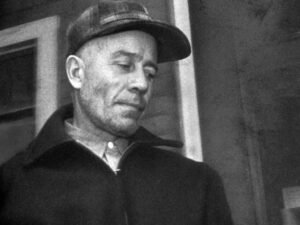When most people think about lesson planning, the first thing that comes to mind is the traditional classroom setting. Teachers painstakingly crafting detailed plans to educate their students day after day. But what if I told you there’s so much more to lesson planning than just teaching kids? There are a plethora of career opportunities available for those skilled in creating engaging and effective lesson plans. In this article, I’m going to delve into the various avenues one can explore in the rich and rewarding world of lesson planning.
1. Educational Consultant
One fascinating career option is becoming an educational consultant. In this role, I’d work with schools, districts, or educational organizations to improve their curriculum and lesson delivery. Educational consultants often offer expert advice on best practices for lesson planning, integrate technology into classrooms, and enhance overall teaching effectiveness. They might even develop custom lesson plans for specific educational contexts or learning environments. This role allows for creativity and the chance to make a significant impact on various educational systems.
2. Curriculum Developer
If I have a knack for designing structured educational content, a career in curriculum development might be a perfect fit for me. Curriculum developers create comprehensive instructional programs and frameworks that educators use in classrooms. This job involves researching educational standards, collaborating with teachers to gather feedback, and testing new approaches to lesson planning. In this position, I could directly influence the quality of education, ensuring students receive the best possible instruction.
3. Corporate Trainer
Did you know lesson planning isn’t limited to schools? As a corporate trainer, I’d use my skills to design training programs that help employees learn new skills or procedures. Lesson planning in a corporate setting focuses on real-world applications and often incorporates engaging activities, role-playing, and assessments. The corporate training field is growing rapidly, and companies are constantly seeking to enhance their workforce’s capabilities. By leveraging lesson planning in this context, I could play a crucial role in employee development.
4. Instructional Designer
Another intriguing opportunity is becoming an instructional designer. In this role, I’d be responsible for creating engaging and effective educational materials for various settings, including online courses, workshops, and more. Instructional designers analyze learner needs, create curricula based on that analysis, and often use technology to deliver the content. If I enjoy blending creativity with technology, this career offers a fantastic way to apply lesson planning skills while embracing the digital age.
5. Online Educator
The surge in online education has created a demand for skilled lesson planners in the virtual realm. As an online educator, I’d develop lesson plans specifically tailored to virtual learning environments, focusing on keeping students engaged through interactive activities and multimedia resources. With platforms like Zoom and Google Classroom becoming commonplace, there’s a growing need for teachers who can create effective online learning experiences. This path not only allows me to reach students from all over the world, but it also offers the flexibility to work from anywhere.
6. Educational Content Writer
If I’ve got a flair for writing, becoming an educational content writer could be an excellent option. This career revolves around creating lesson plans, teaching resources, and educational articles that can be published in various formats, such as blogs, textbooks, or online resources. My background in lesson planning would allow me to provide valuable insights and original content that resonates with educators seeking effective methods for teaching. It’s a great way to share my knowledge while making a difference in the education community.
7. Nonprofit Educational Program Director
Nonprofit organizations often run educational programs that aim to provide additional learning opportunities for underserved communities. As a program director, I’d design and implement lesson plans that not only meet educational standards but also address specific community needs. This role often involves collaboration with various stakeholders, budgeting for resources, and ensuring that the program runs smoothly. It’s a fulfilling way to use lesson planning skills to make tangible changes in people’s lives.
8. Assessment Specialist
Assessment specialists play a critical role in understanding how well educational programs and lesson plans perform. In this position, I’d develop assessment tools, analyze student performance data, and provide insights into areas needing improvement. By evaluating the effectiveness of lesson plans and educational strategies, I could help educators refine their practices to enhance learning outcomes. This behind-the-scenes position is vital for fostering an effective education system and ensuring that students receive the best instruction possible.
9. Education Policy Analyst
Lastly, I could consider a career as an education policy analyst, where I’d study and analyze laws, policies, and regulations affecting educational systems. Lesson planning intersects with policy making, as effective policies can directly impact curriculum design and teacher training. By offering data-driven insights and recommendations to policymakers, I could advocate for improved educational practices that ultimately benefit students and educators alike.
Conclusion
While traditional teaching roles often spotlight lesson planning, there’s a wealth of opportunities available for individuals skilled in this craft. Whether it’s working as an educational consultant or diving into the world of corporate training, the skills I’ve honed in lesson planning can open doors to exciting and meaningful careers. The education sector is ripe for innovation, and sustaining growth in our learning environments requires diverse talents and perspectives. If I’ve got a passion for education and a knack for lesson planning, I can explore these varied pathways to make a lasting impact beyond the traditional classroom.
So, whether I’m looking to stay in teaching or branch out, the world of lesson planning is filled with exciting opportunities waiting to be discovered.




